My MS Visual C# program was compiling and running just fine. I close MS Visual C# to go off and do other things in life.
I reopen it and (before doing anything else) go to "Publish" my program and get the following error message:
Program C:\myprogram.exe does not contain a static 'Main' method suitable for an entry point
Huh? Yes it does... and it was all working 15 min earlier. Sure, I can believe that I accidentally hit something or done something before I closed it up... but what? How do I troubleshoot this?
My Program.cs file looks like this:
using System;
using System.Collections.Generic;
using System.Linq;
using System.Windows.Forms;
using System.Threading;
namespace SimpleAIMLEditor
{
static class Program
{
[STAThread]
static void Main()
{
Application.EnableVisualStyles();
Application.SetCompatibleTextRenderingDefault(false);
Application.Run(new mainSAEForm());
}
}
}
...and there are some comments in there. There are no other errors.
Help?


